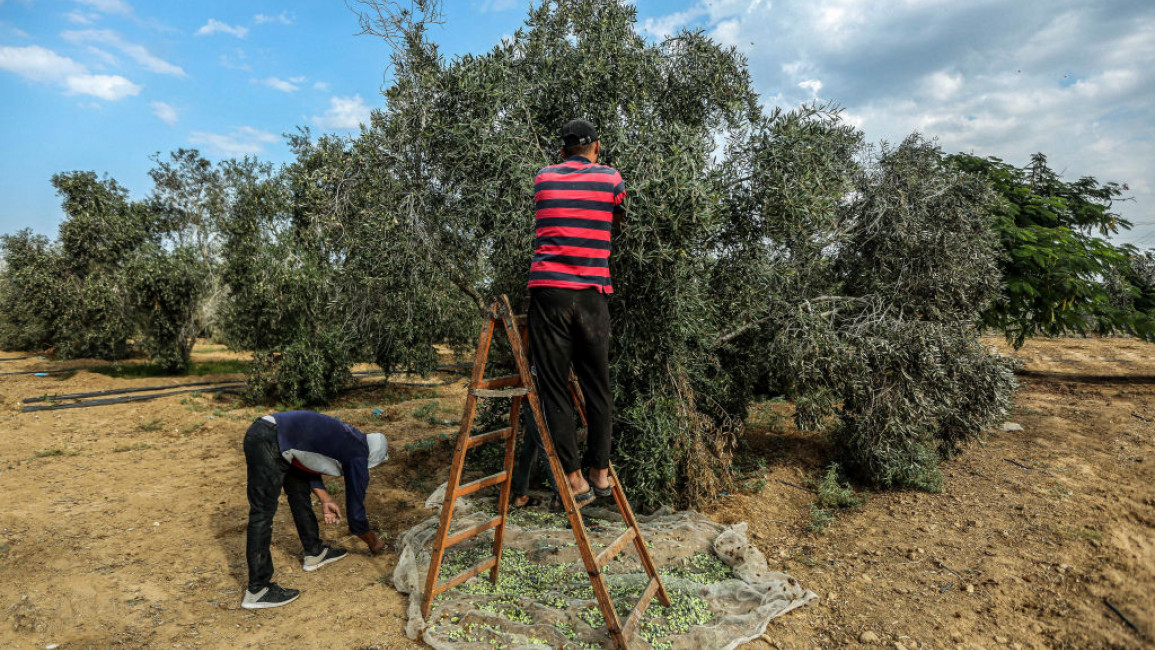Olive trees in Palestinian village set ablaze by Israel settlers
Olive trees, an important source of revenue for Palestinians, were set ablaze by Israeli settlers at a village in the occupied West Bank on Monday.
The incident took place in Ramin in Tulkarm province, the official Palestinian news agency Wafa reported.
Settlers punctured tyres of Palestinian cars and set olive trees alight in Ramin, according to some residents, and left hateful graffiti written in Hebrew on the walls of two houses.
Olive trees, which are often attacked by Israeli settlers, are a key symbol of Palestinian culture. They also play an important economic role, with around 100,000 Palestinian households relying on the crops as their main source of income.
Israeli settlers - and the soldiers protecting them - routinely use violence against Palestinians.
There are currently more than 700,000 settlers in the West Bank and East Jerusalem, which Palestinians consider the capital of their future independent state.
Israeli settlement activity has grown rapidly in recent decades.
At the time of the first Oslo Accord, a 1993 agreement intended to eventually bring about an end to the Israel-Palestine conflict, there were only around 252,000 settlers. That number is closer to 620,000 today, according to the Israeli rights group B'TSelem.
Since 1967, Israeli authorities have uprooted an estimated 800,000 olive trees' - Sally Ibrahim writes about the Palestinian initiative to curb these attacks https://t.co/qKeer4ovv7
— The New Arab (@The_NewArab) October 21, 2021
Settlements breach international law and are viewed as a key barrier to achieving a two-state solution.
Despite this, Israel's controversial 2018 nation-state law declares "Jewish settlement" to be a "national value".
"The State… shall act to encourage and promote its establishment and consolidation," the law reads.


![President Pezeshkian has denounced Israel's attacks on Lebanon [Getty]](/sites/default/files/styles/image_684x385/public/2173482924.jpeg?h=a5f2f23a&itok=q3evVtko)



 Follow the Middle East's top stories in English at The New Arab on Google News
Follow the Middle East's top stories in English at The New Arab on Google News


